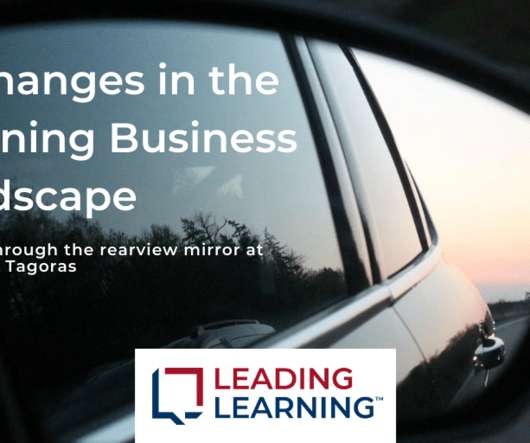What’s Next? 6 Membership Trends to Watch in 2017
Socious
DECEMBER 22, 2016
Now it’s nearly 2017 and a lot has changed. I was watching a movie from 2001 recently and one of the main characters had a laptop. Most families had only a desktop because at that time, laptops cost twice as much. It seems like only yesterday we were worried about what would happen when the computers hit the year 2000.
.png)





























Let's personalize your content